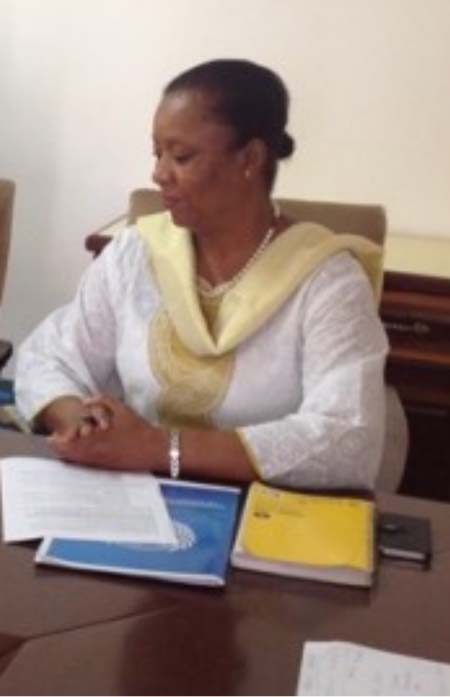
“The theme of this year’s HDR report is particularly important to many of the countries in the world, as it discusses the multiplicity of vulnerabilities the world is facing, and how that affects human development outcomes”, Ms Ade Mamonyane Lekoetje, UDP resident representative in The Gambia, said at the national launching of the HDR on 24 July at the Senegambia Beach Hotel.
Noah Touray permanent secretary at the Office of the President in Banjul attended the launching ceremony.
Meanwhile, Ms Lekoetje in her statement added: “This year’s report continues to echo the message that other HDR in the recent past have made; that is, most countries in the world including many African countries, have continued to make significant progress in human development over the past decade, reaffirming the positive trend in human development and revealing encouraging progress in terms of resilience building in the world.”
According to the UNDP official, the 2014 HDR report recognizes the progress made in The Gambia in human development since 1980.
“The Gambia’s Human Development Index, HDI, value increased from 0.300 to 0.441 an increase of 46.9 per cent or an average annual increase of about 1.17 per cent between 1980 and 2013. With this HDI value, The Gambia now ranks 172 out of 187 countries and territories.
“It is indisputable that The Gambia has made progress in each of the HDI indicators: life expectancy, access to knowledge and a decent standard of living.
“Between 1980 and 2013, Gambian’s life expectancy at birth increased by 12.5 years; mean years of schooling increased by 2.1 years and expected years of schooling increased by 4.1 years.
“Gambia’s GNI per capita increased by about 0.7 per cent between 1980 and 2013.
“Notwithstanding, this commendable progress, poverty reduction in The Gambia has been marginal.The poverty rate is 39.6 per cent. As much as 48.4 per cent, or nearly half, of the population lives below the poverty line of US$1.25 per day according to the 2014 MDG report.
The poverty rate remains particularly high in rural areas largely due to the vulnerability of agricultural income, vagaries of nature, exclusion from economic opportunities and lack of social services. Large sections of the population remain exposed to covariate shocks that occur almost on a yearly or bi-yearly cycle.
“It is in this context that UNDP strongly supports the government of The Gambia’s Vision 2016 on food self-sufficiency.
“Similarly, UNDP commends the government’s bold effort to develop a comprehensive social protection policy, which was validated on 9th July 2014, to address the needs of the most vulnerable.
“It is our form belief that the social protection policy, once adopted and implemented successfully in tandem with the programme for accelerated growth and employment, PAGE, 2012-2015 will ensure the universal provision of services, strengthening social protection and increase employment opportunities thereby laying solid foundation for building long-term resilience in The Gambia.



